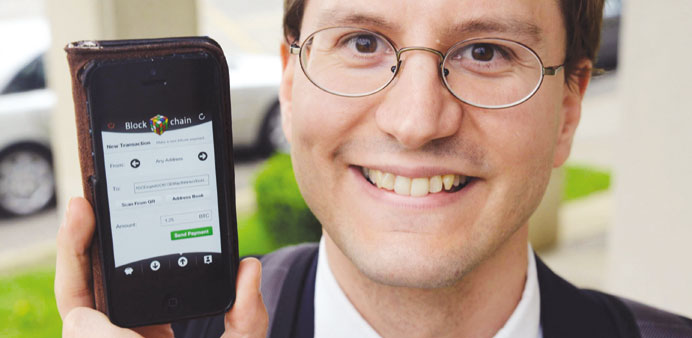The history of currency has entered a surprising and mysterious phase, with the arrival of digital money, presented like some novelty feature in a sci-fi film. The media has amplified this fascinating leg of financial history as their noisy vocation requires, mixing fact and fiction while reporting on Bitcoin, that has become the digital money most in demand in the world (there are others).
But beyond the hyperbole, this is a development that may soon become a major issue for central banks, precisely because it is bound to weaken their positions as exclusive emitters of money.
The costs and benefits of this digital innovation, we must all admit, are still far from clear. I suspect, however, that there will be a growing international consensus that such money forms will impose themselves, without the imminent disappearance of “our” money - coins and bills - and even less so credit and debit cards or electronic transfers. The writing of cheques, on the other hand, is already about to enter a display case for the money museums.
It is not about money disappearing then, but changing: from physical to virtual or digital. While the money we have known for hundreds of years may be palpable, money of the future will only be valuable. This will actually be far less traumatic as when humanity passed from merchandise-money to bank money – a currency ultimately based on confidence.
We may cite here two indisputable examples from centuries ago. Cocoa beans were used as money in ancient Mexico - and if people grew tired of handling them, they could always consume them, hot or cold. Or a more extreme case from the distant past, when a female slave could be used for payment in the Roman world, to become a companion or wife.
While change from merchandise-money to fiduciary money was traumatic, going from physical to digital money will have more benefits than problems. It is cheap to make and move, efficient as a means of payment, hygienic and as durable as can be. Clearly it would also be as vulnerable to forgery or theft as is money today. To suppose it would not, would be to suppose that human nature will change.
Let’s be very clear: the coming monetary change is only technical in nature, not social; a matter of form, not content.
Before this new monetary future arrives, what will happen to digital money like Bitcoin? One can already say that is highly volatile. Digital bubbles can be seen ahead: this new financial asset has seen its value rise in the past year (it skyrocketed from $15 in January to just over $1,000 on November 27, plunging again this week below $600), in the financially developed world and with the Chinese - who else? - attentive as always to such speculative movements.
It is also more or less clear that those fuelling a significant demand for this type of money are crime bosses, for whom this is a practical, very efficient and anonymous currency with no legal framework yet in place.
And as those tasked with controlling the legal monetary mass, what do the central bankers think? They are cautious, but optimistic. The most important one, Ben Bernanke, said that it may hold “long-term promise” if pertinent innovations ensure “a faster, more secure and more efficient payment system”.
For these master regulators, any means of payment that is out of their direct or indirect control is of concern, above all if these will create inflationary pressures. I spoke some months back to a free-market economist who told me with some annoyance that the little exchange markets emerging in Mexico, with their illegal money use, were not efficient. I doubt it, I said, because if that were the case they would not exist, even if they contravene Mexico’s money laws.
The physical money we use today, whose value is based on confidence among its users and the evolution of prices, will gradually move toward their own place in the money museums, as well. We don’t know when, but it will. As far as I know my own Central Bank here in Mexico has no position yet on digital money, though I hope we shall soon hear what they think.
And what do our private banks and bankers think? They’re already involved in all this, though arguably the best thing for them is that nobody controls monetary emission, so money can become an even more lucrative business. Economists on the right have proposed as much, though paradoxically, central banks, the state organs with the monopoly on regulating money emission, are absolutely packed with people who think this way.
Technological changes are initially awesome, as was the case with the first people to ride a horse, or drive a cart, travel by train and board an airplane. There are no technological changes without pain, even if we later gorge ourselves on the welfare they generate. That’s also how it is likely to wind up some day, not too far away, with digital money.- Worldcrunch/America Economia
*Economist Fernando Chávez is a lecturer at Mexico City’s Autonomous Metropolitan University.

